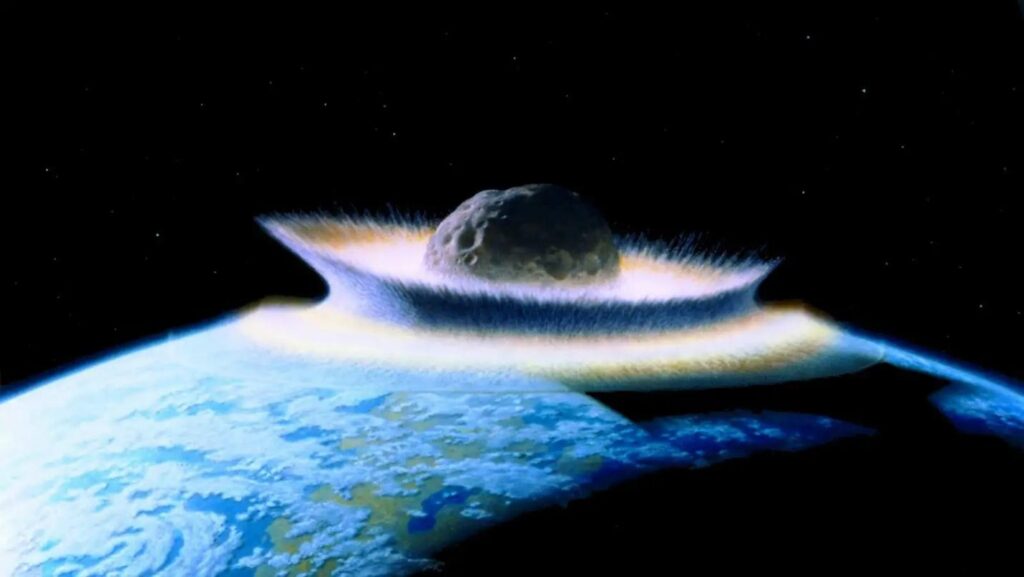Nihilism and the Argument for Collaboration
By: Zach Owen
Bear with me until the end; we might reach a positive note…
The conservation work MWCC supports is collaborative. Community-based, local. Local leadership solving shared problems. This can result in lasting solutions, acceptable to all, though not perfect. This kind of work can be frustrating, and is also really rewarding.
There are always problems to take on. Some people double down: more effort, let’s fix this! Burnout, anyone? For this type, subject yourself to a little cosmic insignificance therapy. But I’ll admit, that can backfire, sending you to a dark place…
In the last few years, more of us are confronting real existential threats. Global pandemics, catastrophic climate change, and more. If we go too far down this road, we wonder – is any of this worth it? Is there a future to save? Even without us mucking around, the Earth will eventually be uninhabitable. We do have a few billion years … in case that lifts your spirit.
There are a few conclusions you could reach. Nihilism is one. If it all ends with our sun dying, assuming a natural or human-caused catastrophe doesn’t end us first, what’s the point of our work? Or anything at all?

Well, maybe there isn’t one. But…we’re still forced to live with ourselves. The “nothing matters, it’s all pointless!!” attitude takes many forms, none of them particularly enjoyable or useful. Joseph Campbell addressed this. If people are confronted with the knowledge that there’s no meaning, that things simply are as they are, won’t they just give up? Or worse, become violent or careless? Not necessarily. We still need to live with ourselves, to participate. Whether your participation is intentional or not, you participate simply by living your life.
When confronted with the reality that things are as they are, and will end with the sun burning out if not long before, we still have the rest of our lives, and our children’s lives, on and on for hopefully hundreds of thousands of years. Maybe none of it matters in the end, but all the same we choose to take part. We participate. The goal in a pointless, utterly baffling endeavor like life, in Joseph Campbell’s opinion, is to participate with decency. As a human. In service to humanity. Because on some level it does matter, day to day, over a lifetime. Maybe it’s all a pointless game, but don’t you want to enjoy it? Shouldn’t you still play it well? Don’t you want everyone around you to suffer less, even enjoy themselves?
From the highly controversial but none-the-less wise Teachings of Don Juan is an idea of choosing a path. I’m taking liberties, but the idea is that there are endless paths we can take, and all lead the same place: nowhere. Or I’ll add: death. So, choose a path with heart. It all ends the same, so why not choose a worthy path?
Another positive take is Effective Altruism and the 80,000 Hours website. These have changed my thinking. Barring an extinction event, the future could be really long. We owe it to future generations to leave a minimal mess to clean up, or even to set them up nicely. And we don’t need a bunch of money to do it. Well, it will take a bunch of money, but there are other people with all that money. For most, it’s the good we can do in our career, our hobbies, our day-to-day interactions.
And here we come to the point. When I think about career choices and how to live, I can’t help but run them through the “sun burning out” scenario. What if Montana is a desert in 200 years? Is all this feel-good watershed work pointless? Maybe the water aspect of it is. But what about the skills we’re learning? Collaboration? Creative problem-solving? Diverse groups finding solutions?
The Watershed Approach:
- Is tied to a distinct land area or hydrologic boundary
- Ensures broad stakeholder involvement and inclusivity
- Is community-based and community-driven
- Relies on local leadership
- Encourages collaboration with partners in the watershed
- Strives for consensus, and avoids litigation as a conservation strategy
Discard the first bullet, and we have a durable approach that can be applied anywhere, any time. At the root of our jobs, aren’t these the skills we’re building? Even if the actual on-the-ground project work is wiped away by flood, drought, development or some other horseman (horseperson?), won’t those skills translate to any future problem? And while there is huge potential in the future, it’s hard for any of us to doubt there are huge problems coming. These skills do translate.
Don’t you feel better now? It’s a matter of walking the line. We all need to participate. On some level, it really does matter. The future could be huge, and long. When you start getting overwhelmed with the details, treat yourself to a little cosmic insignificance therapy. A little perspective. Laugh about it. Then go for a walk. Remind yourself you’ve got to do something for the rest of your life, so why not something decent? Then back to work.


